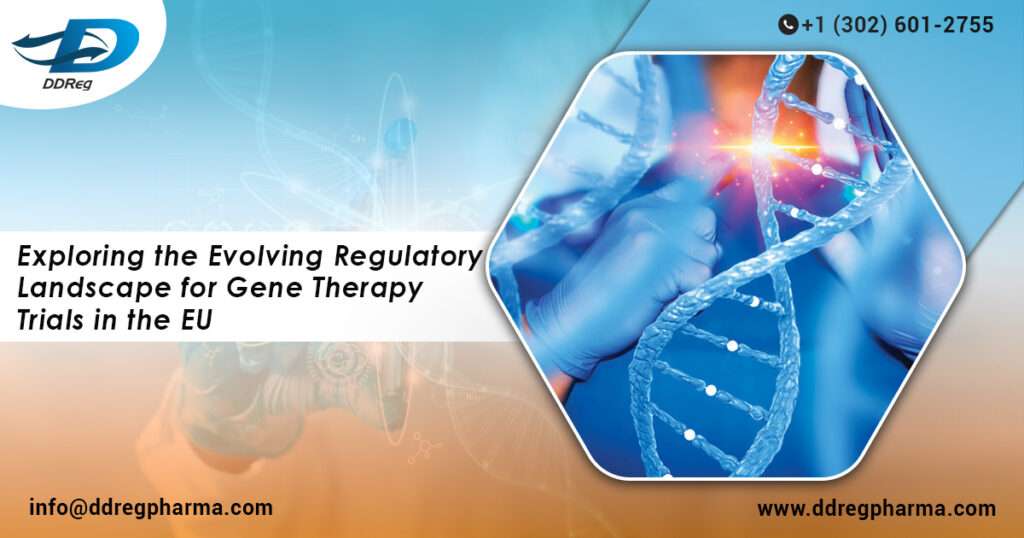Gene therapy is recognized as a revolutionary approach in treating and potentially curing genetic disorders by correcting or replacing faulty genes. As the field progresses, navigating through the regulatory landscape for gene therapy trials in the European Union (EU) can be intricate due to a combination of clinical trial regulations and environmental legislation. Despite the recent advancements in clinical trial regulation through the Clinical Trial Regulation (CTR) No 536/2014, gene therapy studies face unique challenges that are not entirely addressed by the CTR alone.
Clinical Trial Regulation and Its Limitations
The CTR requires each clinical trial applications (CTAs) submitted in the EU to be submitted through the centralized Clinical Trial Information System (CTIS). The main aim of this Regulation was to ensure application harmonization throughout the Member States. The centralized system indeed simplifies the CTA process for the majority of clinical trials; however, it doesn’t cover the additional requirements laid down for gene therapy trials that involve Genetically Modified Organisms (GMOs). Because the applications for GMOs remain outside the perspective of the CTR, gene therapy trials fall under additional, various regulations across different Member States, which makes the process quite fragmented and sometimes onerous.
Regulatory Requirements for Gene Therapy Medicinal Products
Gene Therapy Medicinal Products (GTMPs) often involve genetically modified organisms, making them subject to particular environmental legislation. In the EU, this legislation is governed by two main Directives:
- Directive 2001/18/EC on the deliberate release of GMOs.
- Directive 2009/41/EC on the contained use of GMOs.
The applicability of these Directives depends upon the nature of the gene therapy trial in question and is interpreted differently across Member States. This translates into large variability in procedures and requirements, thus making a very complex regulatory environment for GTMP trials, especially those conducted in more than one Member State. This complexity contrasts sharply with the relative simplicity seen in countries like the United States, where categorical exclusions are usually adequate.
Common Application Forms
To address the challenges of divergent GMO application processes, common application forms (CAF) have been introduced for the gene therapy trials. These CAFs aim to standardize the information required for GMO applications, reducing the regulatory burden:
- CAF for AAV Vectors: Designed for trials involving adeno-associated virus vectors.
- CAF for Genetically Modified Human Cells: Applied to trials involving genetically modified human cells.
- CAF for Viral Vectors (excluding AAV): A more general form applicable to trials involving other viral vectors.
While these CAFs offer a degree of standardization, their endorsement varies across Member States. Not all Member States have adopted the CAFs, and even those that have may endorse different forms for various types of trials. This lack of universal adoption means that while the CAFs simplify the process in some regions, discrepancies remain.
Advances in the Netherlands
The Netherlands has simplified the regulatory process for the gene therapy trials. The Dutch medical centers that are involved in GTMP studies are given the chance to get general GMO licenses for particular types of trials such as Adeno-associated virus-based trials or trials where the human cells are genetically modified. The platform licenses allow these centers to conduct trials without the need for a specific trial-specific GMO license, and it decreases the regulatory effort to the submission of a CTA via CTIS. This method is very close to the US model and is a remarkable step forward in regulatory effectiveness.
Future of GMO Regulation in the EU
While the CTR successfully harmonized the CTA process, the regulations regarding applications featuring GMOs are complex and not properly integrated. Recent proposals for the latest pharmaceutical legislation, adopted by the European Commission in April 2023, may further improve the situation. Changes to the CTR under the proposal should permit the submission of environmental risk assessments and CAFs via CTIS, further streamlining the application process for GMOs.
Conclusion
While the CTR has made significant strides in harmonizing clinical trial applications across the EU, gene therapy trials continue to face a complex regulatory landscape due to the separate GMO requirements. The introduction of common application forms represents a step towards reducing the regulatory burden, though the lack of universal endorsement and the variability between Member States remain challenges. The Dutch approach to platform GMO licenses offers a promising model for improving efficiency. Looking ahead, proposed legislative changes could further streamline the process, making the EU a more attractive destination for gene therapy trials.
In this evolving regulatory environment, staying informed and adapting to changes is crucial for sponsors and researchers involved in gene therapy. Engaging with expert regulatory consultants can provide valuable support in navigating these complex requirements and ensuring compliance across different jurisdictions.
Reach out to DDReg for your regulatory and pharmacovigilance needs related to cell and gene therapy products. With over 15 years of in-depth regulatory and safety experience, DDReg is your go-to-partner for regulatory consulting and safety compliance.
Read more from our other Blog here: How EMA’s Expedited Pathways and Scientific Advice Are Shaping Drug Approvals

